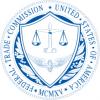Federal
The Internet Should Be ‘Neutral,’ but Congress Should Not
A federal appeals court’s rejection of the Federal Communications Commission’s decade-plus push for stronger oversight of the internet was a crushing defeat for “net neutrality” as it has been pursued since the Obama administration. But the ruling could also be seen as the latest indictment of the inability of Congress to regulate at anywhere near the speed of tech.

RDOF Defaults
The Rural Digital Opportunity Fund was the biggest attempt at the time to solve the rural broadband gap. The Federal Communications Commission had originally slated $20.4 billion to award to internet service providers in a reverse auction, meaning the ISP willing to take the smallest subsidy for a given area won the funding. Winners were to collect the funding over 10 years and had up to seven years to build the promised networks. The program ran into problems in several dramatic ways.
Expanding Broadband Adoption in Wisconsin with Digital Equity Capacity Funds
On November 1, 2024, the Wisconsin Public Service Commission (PSC) and its Wisconsin Broadband Office (WBO) received over $13 million in Digital Equity Capacity Grant Program funding from the National Telecommunications and Information Administration (NTIA). With this funding, WBO will implement the activities in its state Digital Equity Plan.
Vermont’s Broadband Buildout to be Nearly Complete After BEAD Program
Vermont Community Broadband Board (VCBB) has preliminary applications from internet service providers (ISPs) to serve nearly every eligible address in the state under Vermont’s Broadband Equity, Access, and Deployment (VT-BEAD) Program. Vermont’s allocation of BEAD funds is almost $229 million. The applications were from a preliminary round, which was a mandatory step for any ISP seeking VT-BEAD funds for broadband construction.
Sens Cruz, Cantwell Announce Commerce Subcommittee Rosters for 119th Congress
Senate Commerce Committee Chairman Ted Cruz (R-TX) and Ranking Member Maria Cantwell (D-WA) announced the Subcommittee assignments for the 119th Congress. Chairman Cruz and Ranking Member Cantwell are ex officio members on each subcommittee.
Subcommittee on Aviation, Space, and Innovation
Sen. Jerry Moran (R-Kan.), Chairman
Sen. John Thune (R-S.D.)
Sen. Ted Budd (R-N.C.)
Sen. Eric Schmitt (R-Mo.)
Sen. Tim Sheehy (R-Mont.)
Sen. Shelley Moore Capito (R-W.Va.)
PBS and NPR on edge over FCC letter and Trump budget scrutiny
Forty years ago, the Reagan administration told PBS to find ways to increase funding for public television outside of taxpayer dollars. It did. PBS’ response to the challenge was to enhance the way it acknowledged sponsors. Instead of merely running a company logo before its programming, PBS let corporate underwriters place messages that looked more like standard commercials. That process helped sustain such programs as “Nova,” “Masterpiece” and Ken Burns’ acclaimed documentaries.
A rocky road lies ahead for RDOF as money drains away
With all the buzz around what will and won’t happen to the Broadband Equity, Access and Deployment (BEAD) program, it’s easy to forget the government’s Rural Digital Opportunity Fund (RDOF) is chugging along – albeit on a road rife with defaults and rural areas left behind. As of 2025, internet service providers (ISPs) have defaulted on $3.3 billion of the $9.2 billion total in RDOF awards, according to a study from the Benton Institute for Broadband & Society.

Federal Trade Commission Launches Inquiry on Tech Censorship
The Federal Trade Commission launched a public inquiry to better understand how technology platforms deny or degrade users’ access to services based on the content of their speech or affiliations, and how this conduct may have violated the law. Censorship by technology platforms is not just un-American, it is potentially illegal. Tech firms can employ confusing or unpredictable internal procedures that cut users off, sometimes with no ability appeal the decision.
Ensuring Lawful Governance and Implementing the President’s “Department of Government Efficiency” Regulatory Initiative
It is the policy of my Administration to focus the executive branch’s limited enforcement resources on regulations squarely authorized by constitutional Federal statutes, and to commence the deconstruction of the overbearing and burdensome administrative state.
Trump's historic war on traditional media
President Trump, in small and unprecedented ways, is punishing media companies more than any leader since America's founding. Once considered a bastion for free expression, America's record on press freedoms has fallen to a historic low, according to Reporters Without Borders. Under Trump's second presidency, the press is "under siege," the group argues. American trust in media has hit an all-time low. Most U.S. counties have little to no local news sources anymore. Trump is targeting traditional media sources at a moment of tremendous vulnerability for the industry.

